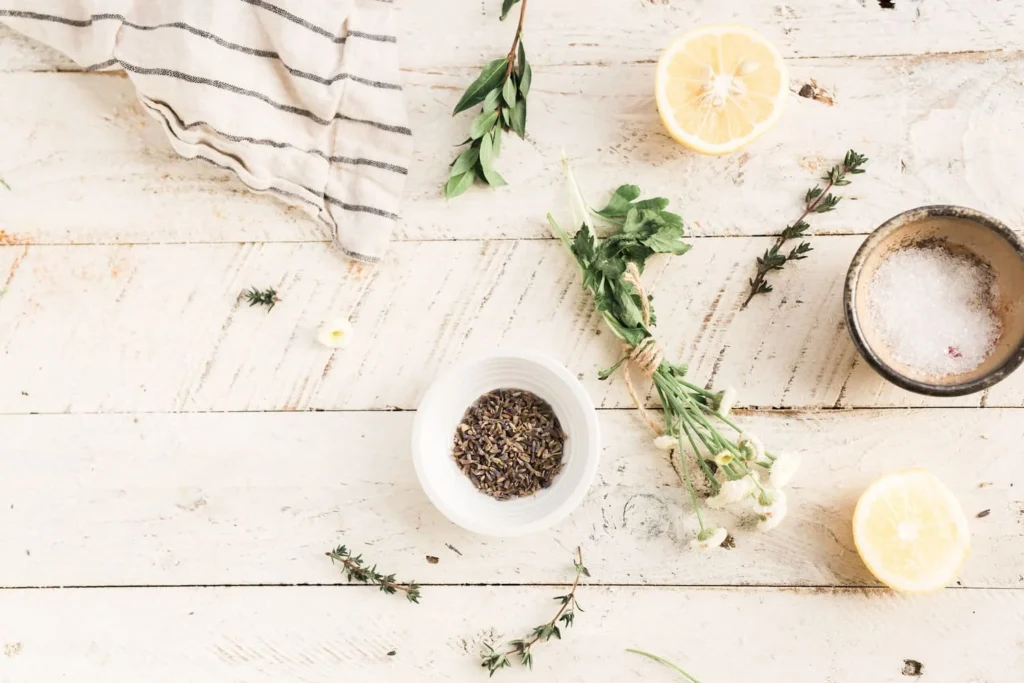While there is no one-size-fits-all solution for acne, certain herbs and vitamins have been found to have potential benefits in managing acne symptoms. It’s important to note that individual responses may vary, and it’s always advisable to consult with a healthcare professional before starting any new supplements or herbal remedies.
In this article, we go through some of the key vitamins (and herbs) an Acne Naturopath, such as myself, might recommend to help manage acne.
What vitamins and herbs are commonly mentioned for their potential acne-clearing properties?
Zinc: Zinc is an essential mineral that supports immune function and helps regulate hormone levels. It has anti-inflammatory and antimicrobial properties that may help reduce acne. Zinc supplements or foods rich in zinc, such as oysters, pumpkin seeds, and legumes, may be beneficial.
Vitamins A and E: Vitamin A plays a crucial role in maintaining healthy skin and regulating sebum production. It is often prescribed in the form of retinoids for acne treatment. Vitamin E is an antioxidant that can help protect the skin from oxidative damage. Foods rich in vitamin A include carrots, sweet potatoes, and leafy green vegetables, while vitamin E can be found in nuts, seeds, and vegetable oils.
Green tea: Green tea contains polyphenols, a powerful antioxidant that work wonders in combating inflammation. Embracing the enchanting ritual of sipping on green tea or employing its magical essence as a gentle face wash can unveil a pathway to appease the flames of acne-related inflammation. However, tread cautiously with excessive sugar or milk in your tea, as this might amplifying acne woes for certain individuals.
Turmeric: Turmeric contains an active compound called curcumin, which has anti-inflammatory and antioxidant properties. While there is limited scientific evidence specifically for acne, curcumin may help reduce inflammation and support overall skin health. It can be used as a spice in cooking or taken as a supplement.
Probiotics: Probiotics, the nurturing allies of our gut microbiome, possess a profound capacity to fortify our well-being. Studies suggest that certain strains of probiotics can help reduce inflammation and improve acne symptoms. Consuming probiotic-rich foods like yogurt or taking probiotic supplements may be worth considering, especially if gut health issues are suspected to contribute to acne.
Oregon Grape: Oregon grape is a wonderful herb with antimicrobial properties that may help inhibit the growth of acne-causing bacteria. It can be taken internally as a supplement or used topically as part of a skincare routine. As an Acne Naturopath, I can recommend specific supplements that contain oregon grape.
It’s important to remember that everyone’s skin is unique, and what works for one person may not work for another. As promoted by Naturopaths, a holistic approach to acne management should include proper skincare, a healthy diet, regular exercise, stress management, and good hygiene practices. If acne persists or worsens, it’s advisable to consult with a healthcare professional for a comprehensive evaluation and personalised treatment plan.
If you would like support to improve your overall health and help manage acne, you can book a consult with Naturopath Lindsay for a clarity call. During this call, we will discuss what working together looks like and how we can manage your acne through Naturopathy.
Up next, hormonal acne – the top three triggers.


